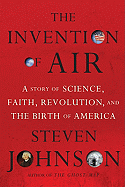Once upon a time, BookWorld was a happy land, where many volumes of good and even great works of literature were created using the Old Ways. Enlightened BookWizards took the simplest ingredients--mere letters--and conjured words, phrases, sentences and paragraphs that captured a story's light exquisitely and reflected it forever.
Then those words were passed along to the BookBuilders, who brushed the stories onto sheets of paper culled from the Secret Parchment Forest. Once finished, wise and passionate BookSellers distributed the magic tomes to thousands of BookReaders, who eagerly awaited each new treasure.
Everyone loved books. Everyone was happy. La, la, la.
But then came the BadTimes, and the BookReaders began to disappear, lured away by the siren songs of WebWorld, the hypnotic glow of E-Readers and the firebreathing Economic Dragons that finally decimated the landscape.
Where were the BookWizards? Shunned. Where were the BookBuilders? Downsized. Where were the BookSellers? Petrified.
The End?
No, you're just imagining things.
Since this is my final column during a year that has seemed fully in tune with that old curse, "May you live in interesting times," I decided to end on a positive note by considering the role imagination plays in our lives as professional book people.
Look it up. In the
Oxford American Dictionary, imagination is "the faculty or action of forming new ideas, or images or concepts of external objects not present to the senses." It is also "the ability of the mind to be creative or resourceful."
We are in the imagination business by either definition, and because of this we, more than most people, should be aware of the dangers and possibilities inherent in that magic word.
For starters, BookWorld has always been crumbling, readers have always been too few and the dragons have always been breathing fire at our gates. Consider this excerpt from the recently published fourth volume of
A History of the Book in America, edited by Janice A. Radway and Carl F. Kaestle:
Worries that book buying was increasing insufficiently prompted the Joint Board of Book Publishers and Booksellers to pass a resolution in 1940 calling for a campaign to increase book reading in the United States and creating the American Book Council to foster such efforts. The failure of earlier efforts to increase book sales prompted skepticism among some in the trade. Indeed, it had become common to bemoan the state of book distribution ever since the publication of O.H. Cheyney's Economic Survey of the Book Industry in 1929. Cheyney had concluded that the operations of the book industry were haphazard and wasteful, that book distribution was ineffective, that educational provisions were weak, and that more could be done to promote book buying and reading. . . . Worries about the extent of reading in the United States were exacerbated not only by the political atmosphere but also by the appearance of new media. Radio and movies not only competed with books and print for the attention of Americans but also, some thought, seemed to provide more titillation than thoughtful analysis.
And what of the vanished herds of brilliant BookReaders that once roamed the literary plains? In
The Locusts Have No King, Dawn Powell's brilliant satire of the New York publishing world in the late 1940s, a "contemporary novel-writing" class at the League for Cultural Foundation is described as involving "a careful survey of the Sunday book review magazines and keeping up with guest authors on radio programs for inside information."
During a group discussion that leans heavily on secondary sources (Miss Corey opines that
The West Waits "was long-winded and not what the public expected of Nackley. . . . It didn't live up to the promise of his other book,
The Nevada Moon, at least not for me. That's what the
New York Times said."), one of the participants dares to say, "I liked it," which inspires a stern rebuke: "I suppose you'd set up your opinion against the nation's leading critics. I don't need to read the book to know it isn't up to standard . . ."
As 2008 comes to an end, I mourn neither the hazardous present nor an illusory past. For 2009, I'll simply begin a new conversation by imagining possibilities:
- What if the shop local movement continues to gain momentum nationwide?
- What if we work even harder to nurture the readers we have instead of bemoaning those we've lost?
- What if we begin paying more attention to all the fine books, including translated works, being published by independent and university houses?
- What if some of those bright minds and good people who are unfortunately no longer working for major publishers decide to create more smart, dynamic and lean indie presses?
- What if, with common sense, fierce adaptability and, yes, imagination, it all works out?
Here's to an imaginative New Year.--Robert Gray (column archives available at Fresh Eyes Now)












 For 57 years my alma mater, Dickinson College, in Carlisle, Pa., has bestowed an award on a scientist who makes discoveries that contribute to the welfare of mankind. That award is named after Joseph Priestley, whose life, and especially whose turbulent times, are chronicled in Steven Johnson's brief, engaging study of a man he describes as a "transformative figure" in the fields of chemistry, electricity, politics and faith, "not so much a biography as it is the biography of one man's ideas."
For 57 years my alma mater, Dickinson College, in Carlisle, Pa., has bestowed an award on a scientist who makes discoveries that contribute to the welfare of mankind. That award is named after Joseph Priestley, whose life, and especially whose turbulent times, are chronicled in Steven Johnson's brief, engaging study of a man he describes as a "transformative figure" in the fields of chemistry, electricity, politics and faith, "not so much a biography as it is the biography of one man's ideas." 